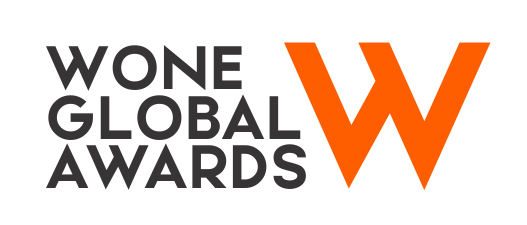
Nudrat Ejaz Piracha
Award Category
Nominated In
2025
Location
Islamabad Pakistan
Achievements
I believe I deserve the WONE Global Award 2026 because my work sits at the intersection of law, technology, and social impact — using innovation to make justice more accessible for those who need it most.
Over the past several years, I have committed myself to bridging the justice gap for marginalized communities, especially women, children, and the destitute. I am leading the development of AI-powered legal chatbots that provide free, instant access to Pakistan’s laws. These tools are designed in plain language, enabling people who cannot afford legal counsel to understand their rights and seek remedies without barriers.
Recognizing that legal empowerment requires more than information, I am also spearheading the creation of a digital platform at ICADRP (International Centre for ADR Practice) to connect individuals with alternative dispute resolution mechanisms, pro bono counsel, and rapid mediation options. This initiative aims to reduce case backlog and provide communities with faster, less costly paths to justice.
In addition to these systemic contributions, I invest in the next generation of legal professionals. I organize and mentor students in law moot competitions, fostering advocacy skills, critical thinking, and ethical practice. These events not only strengthen legal education but also inspire young lawyers to approach justice delivery creatively and inclusively.
By leveraging technology, education, and policy frameworks, I am building scalable solutions that democratize access to justice in Pakistan and set a replicable model for other jurisdictions.
This nomination represents not just my professional journey but my belief that justice must be inclusive, accessible, and technology-enabled. Winning this award would amplify these efforts, enabling me to expand outreach, onboard more partners, and continue transforming the way marginalized communities interact with the justice system.
Accomplishments
In the past two years, my work has focused on building a sustainable, institutionalized ecosystem for Alternative Dispute Resolution (ADR) in Pakistan, while driving measurable results in training, mediation, and international representation.
-
Founded ICADRP: I established the International Centre for ADR Practice (ICADRP) as a hub for mediation, arbitration, and dispute resolution best practices. This platform is building Pakistan’s first integrated, institutional ADR ecosystem, designed to complement the formal justice system and reduce case backlogs.
-
Capacity Building: I have trained over 450 lawyers, judges, and stakeholders in ADR processes, including internationally recognized 40-hour mediation trainings, raising professional standards and creating a pipeline of qualified mediators.
-
Government-Designated ADR Center: I currently lead a government-recognized ADR center, which has already handled 30 mediations since inception — a milestone that demonstrates the growing trust of courts and disputing parties in institutional ADR.
-
Infrastructure Development: I spearheaded the creation of ADR centers across multiple jurisdictions, ensuring physical and procedural access to justice outside traditional courtrooms.
-
National ADR Movement: Beyond infrastructure, I have been at the forefront of a broader national movement on ADR, engaging with policymakers, judiciary, and bar councils to embed ADR into the justice framework of Pakistan.
-
International Recognition: I organized Pakistan’s first-ever participation in the Foreign Direct Investment (FDI) International Arbitration Moot, where our team reached the global rounds, establishing Pakistan’s presence on the international arbitration stage and inspiring future participation.
Together, these initiatives represent measurable impact — hundreds trained, dozens of cases mediated, new centers operational — and a long-term vision for justice reform. They demonstrate my commitment to strengthening dispute resolution mechanisms and positioning Pakistan as a serious player in international arbitration.
Innovation
What sets my work apart is the fusion of legal innovation, technology, and systemic reform — creating solutions that are not just theoretical, but practical, scalable, and transformative for Pakistan’s justice sector.
Unlike traditional legal practice that focuses primarily on courtroom advocacy, my strategy centers on institutional change and user-centered design. Through ICADRP, I am pioneering a model that integrates technology-driven tools — including AI-powered legal chatbots providing free access to Pakistan’s laws — with in-person ADR services. This approach bridges the gap between legal literacy and legal remedy, empowering women, children, and marginalized communities to understand and assert their rights before a dispute escalates to litigation.
I also emphasize capacity-building as a multiplier of impact. By training hundreds of lawyers, judges, and mediators through globally recognized 40-hour programs, I am not only resolving today’s disputes but seeding a generation of professionals equipped to deliver fair, efficient, and accessible dispute resolution tomorrow.
My work further stands out for its institutionalization of ADR — moving beyond ad hoc solutions to create a permanent infrastructure for mediation and arbitration centers. This includes building government partnerships, setting procedural standards, and creating pathways for court referrals, which collectively contribute to reducing judicial backlog and restoring public confidence in the justice system.
Finally, I have brought global visibility to Pakistan’s dispute resolution capacity by organizing the country’s first participation in the FDI International Arbitration Moot, ensuring that Pakistani law students and institutions are part of the global dialogue on investment arbitration.
In sum, my differentiation lies in combining technology, education, and institution-building into a cohesive strategy that reimagines justice delivery, making it faster, fairer, and accessible to all.
Write a Review
No reviews yet.
